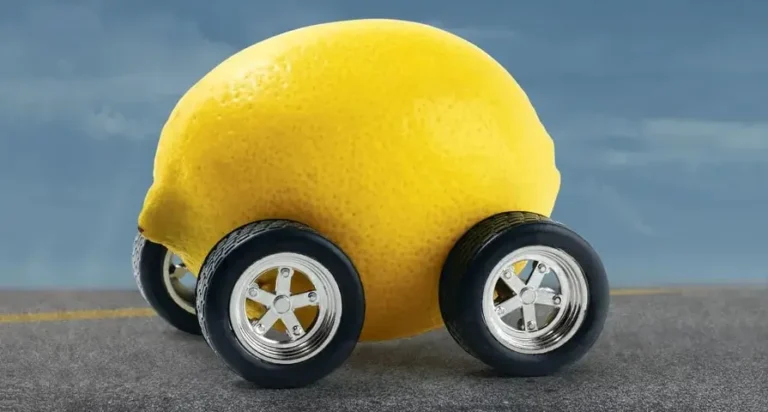
Lemon
What Is a Lemon?
Imagine the thrill of purchasing a brand new car, only to face persistent mechanical problems that refuse to go away despite numerous repair attempts. Such a frustrating scenario is often caused by what is commonly called a “lemon.” In automotive terms, a lemon is a vehicle plagued with substantial defects that impair its usability, safety, or value even after multiple attempts at repair. In California, if you find yourself in this predicament, consulting with a lemon law attorney in Los Angeles can offer guidance and help you navigate the complicated legal terrain to seek recourse. Understanding the specifics of what defines a lemon can be highly beneficial. Generally, a car is considered a lemon if it has significant defects that persist despite multiple repair attempts and if these defects significantly impair the vehicle’s use, value, or safety. These issues cause frequent disruptions and safety concerns, making it vital to acknowledge the seriousness of the problem and take the appropriate steps toward resolving it.
Common Signs Your Car Is a Lemon
Recognizing the signs that your car might be a lemon is your first defense in addressing the problem. Here are some common red flags that could indicate that your vehicle is a lemon:
- Repeated Mechanical Issues: One of the primary indicators of a lemon is recurring mechanical problems. Suppose your vehicle keeps to the shop for the same issue or a series of difficulties and unresolved problems. In that case, it is a vital sign that you may have purchased a lemon.
- Significant Safety Concerns: Substantial safety issues, such as brake failures, steering problems, or malfunctioning airbags, can pose severe risks to you and your passengers. If these problems persist despite repairs, it’s a serious concern that needs to be addressed immediately.
- Odometer Issues: Discrepancies in the odometer readings or a suspicious vehicle history report can also indicate that your vehicle may have more profound, undisclosed issues.
- Lengthy Repairs: If your car consistently spends more time being repaired than on the road, this can be a significant inconvenience and a clear signal that the car has unresolved defects that qualify it as a lemon.
Documenting Issues with Your Car
Keeping comprehensive records is critical to proving that your car is a lemon. Not only does detailed documentation help you keep track of all the problems, but it also serves as vital evidence should you need to escalate the issue legally:
- Keep a Log: Record all repair attempts, including dates, details of the issues, and any actions taken to fix them. This log will serve as a timeline and help establish the persistence and severity of the car’s problems.
- Save Receipts: Retain all receipts and invoices from repair shops, repair orders, and communication with the manufacturer or dealership. These documents are essential for substantiating your claim.
- Maintaining a good maintenance record is not just a good practice for the upkeep of any vehicle. Still, it can also be instrumental in demonstrating the continuity and severity of your car’s problems.
Seeking Expert Advice
If you suspect your car is a lemon, seeking expert advice in Los Angeles can provide the clarity and direction you need. Consulting a lemon law attorney specializing in such cases can make a significant difference. These professionals can assess your situation, guide you through the necessary legal steps, and help you understand your rights under the law. Websites offer comprehensive guidelines on how to find and work with a lemon law attorney, ensuring that you receive expert advice tailored to your specific circumstances.
Understanding Lemon Laws in Your State
Lemon laws vary significantly from state to state, and knowing your state’s specific regulations is crucial for making informed decisions. Here’s what you should be aware of:
- State-Specific Criteria: Each state has unique qualifications and definitions for what constitutes a lemon. Some may have stricter requirements than others, so it’s essential to understand the specific criteria in your state.
- Repair Attempts: In most states, a vehicle is typically considered a lemon after a certain number of unsuccessful repair attempts. However, the exact number required can vary, so familiarize yourself with your state’s laws.
- Legal Deadlines: Be mindful of time limits for reporting and addressing lemon claims. Each state has its timelines, and failing to act within these periods can impact your ability to seek remedies.
Steps to Take After Confirming a Lemon
After determining that your vehicle is indeed a lemon, taking the following steps can lead you toward a satisfactory resolution:
- Contact Manufacturer: Inform the manufacturer of the issues, providing all documented evidence. Manufacturers often have customer service hotlines or specific departments to handle such complaints.
- File a Complaint: If the manufacturer does not offer a satisfactory response, you may need to file a complaint with your state’s consumer protection agency or another relevant authority. This step is crucial as it formally registers your grievance and initiates an official case review.
- Seek Legal Action: If all prior attempts for resolution fail, legal action may be necessary. Lemon law attorneys can guide you through the intricacies of filing a lawsuit, representing you in court, and helping you achieve the best possible outcome.
Frequently Asked Questions
Here are answers to some of the most frequently asked questions regarding lemon laws:
- What counts as substantial defects? Defects affecting the car’s value, safety, or usability fall into this category. Examples include persistent engine issues, faulty brakes, or malfunctioning safety features.
- How many repair attempts are considered sufficient? Generally, three to four attempts are standard, but this can vary by state. Some states have more lenient or stricter requirements based on the severity of the car’s issues.
- Are used cars covered under lemon laws? Some states cover used vehicles, though new ones are more commonly protected. It’s essential to check your state’s regulations to understand if used cars are included.




